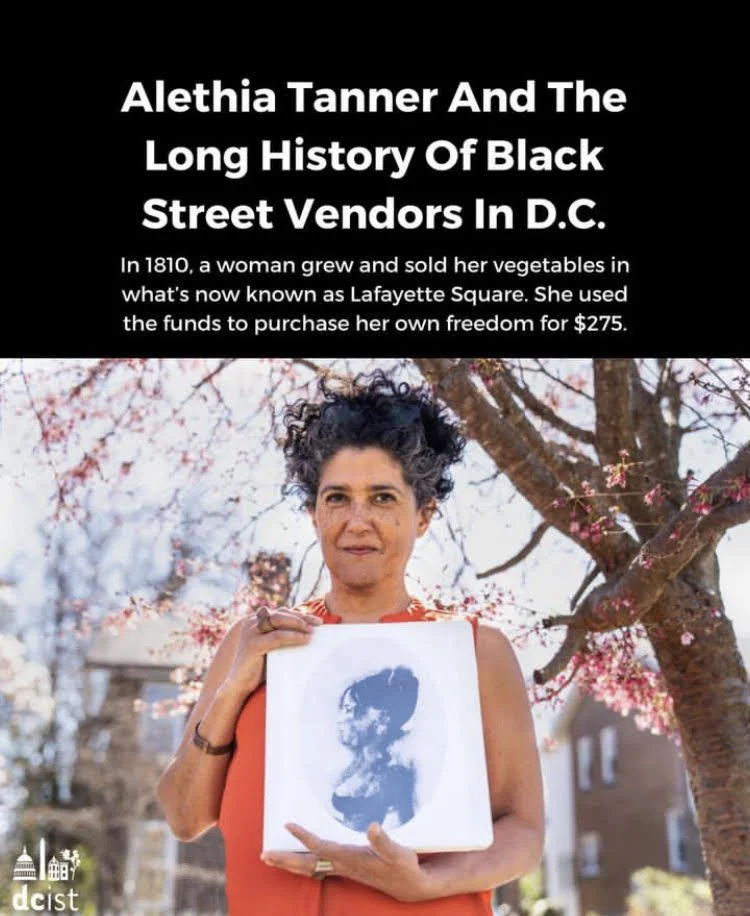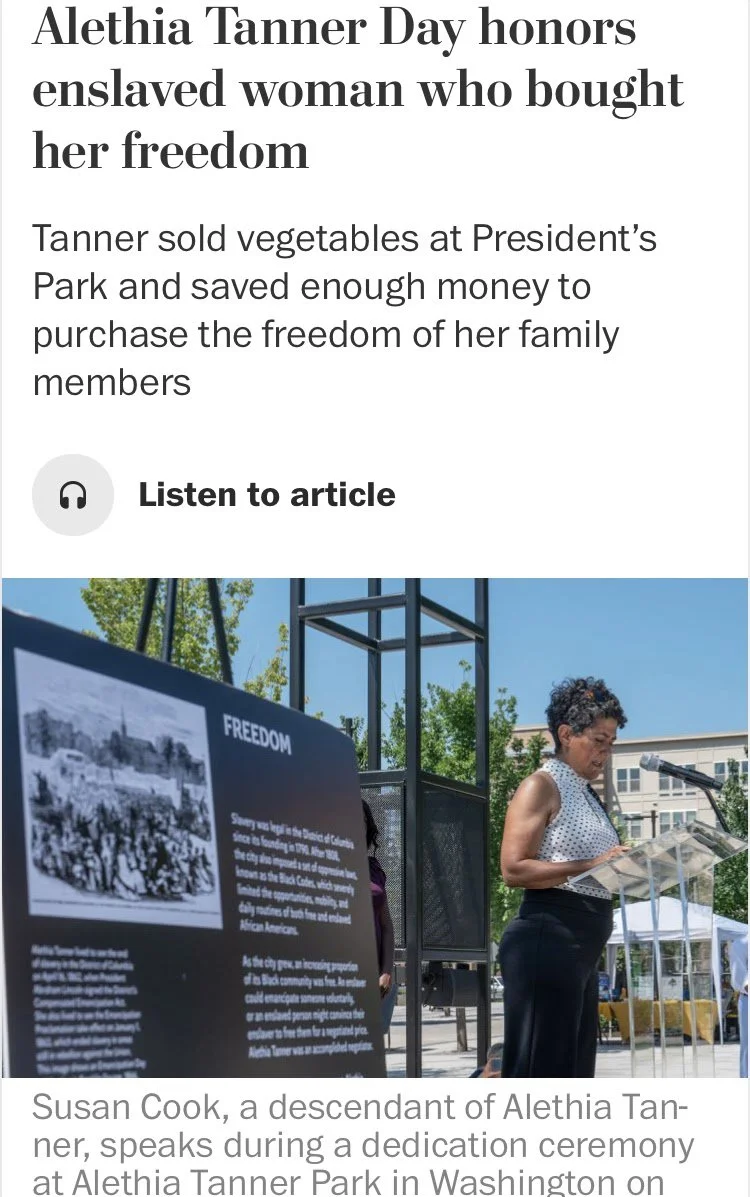For Susan Cook, her backyard garden in Takoma is how she connects to the world and her community.
Although it can become a little dormant in the winter, she still usually has hardy greens like mustard and collards. When the weather gets warmer, her yard grows lush with strawberries, blueberries, black raspberries, figs, and more. Cook even gets plants and flowers like goldenrod, aster, beebalm, and swamp milkweed that attract bees and hummingbirds. And just like the pollinators that partake, Cook says the harvest is shared with her neighbors.
“To me, food is freedom,” says Cook, who works for the Montgomery County parks department.
That belief about community and freedom was planted in Cook’s mind early on in her life. Despite being born and raised in Detroit, both of Cook’s parents were from D.C. so she grew up hearing many stories about her family’s roots in the region. But the one that has resonated most with Cook, and inspired her love of gardening, is about the life of her fourth grand aunt – Alethia Tanner.
It would cost $275 for Alethia Tanner to buy her freedom, but she finally managed to do it. On July 6, 1810, Tanner gave that amount to Joseph Dougherty, a coachman for Thomas Jefferson, who used it to purchase Tanner’s freedom from her owner, Rachel Pratt, who sold Tanner that same day. On July 10, Dougherty freed Tanner.
Born around 1785 in Upper Marlboro, Md., Alethia “Lethe” Browning Tanner grew up enslaved with her two sisters on a plantation near the Patuxent River in Maryland. Tanner’s older sister, Sophia Browning Bell, kept a small garden where she grew vegetables that she would sell at markets in Alexandria and the District.


